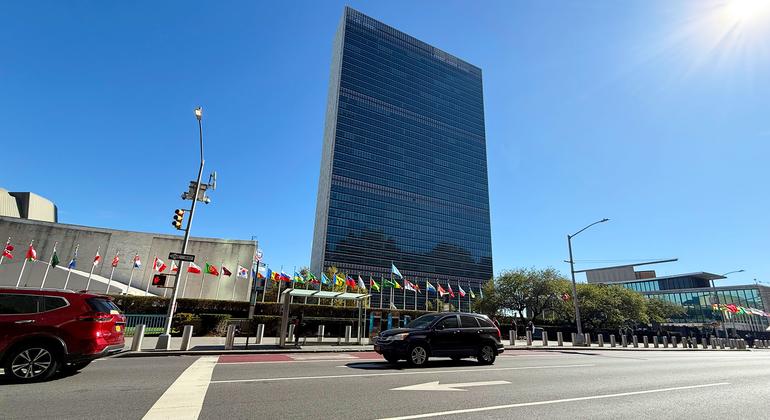Certainly! Here’s the translation of the provided text into American English:
—
The United Nations General Assembly requested on Wednesday, for the thirty-third time, the lifting of the economic embargo imposed by the United States on Cuba. With a notable majority, the resolution received 165 votes in favor, 7 against, and 12 abstentions. Among the countries that opposed it are Argentina, the United States, Hungary, Israel, North Macedonia, Paraguay, and Ukraine. The abstaining nations include Albania, Costa Rica, and Poland.
This year, the support dynamics towards Cuba have shown significant changes, as countries from Latin America and the Caribbean, along with all member states of the European Union, did not provide the unanimous support they had expressed on previous occasions. Last year’s vote, for instance, garnered 187 votes in favor with only two against and one abstention.
The embargo, which was established in 1960 and has tightened over time, impacts not only Cuba but also third countries since 1992. The presented resolution is titled “The Need to End the Economic, Commercial, and Financial Blockade Imposed by the United States of America Against Cuba” and is based on a report from the UN Secretary-General. The text underscores principles of sovereign equality among states, calling for the freedom of international trade and navigation.
Among the concerns expressed in the resolution is the condemnation of laws like the “Helms-Burton Act,” which have extraterritorial effects and affect the sovereignty of other nations. All countries are urged to avoid measures that contravene this resolution, and a report on its compliance is requested for the next session of the Assembly.
Cuba’s Foreign Minister, Bruno Rodríguez Parrilla, who presented the resolution, described the embargo as illegal and extraterritorial, arguing that this policy constitutes an act of collective punishment that infringes upon the human rights of the Cuban people. According to Rodríguez Parrilla, the embargo particularly hinders development in critical areas such as health and food, emphasizing that its impact aims to exacerbate the social and humanitarian crisis facing millions of Cubans.
The official also denounced the pressures from the U.S. State Department to influence the votes of other UN members and condemned U.S. military actions in the Caribbean region and the Pacific. He reiterated Cuba’s position as a peaceful state, committed to international cooperation and the self-determination of peoples, calling on the international community to support the resolution as an act of justice and respect for sovereignty. The news is still developing.
—
If you have any further requests or need additional information, feel free to ask!
Source: MiMub in Spanish










